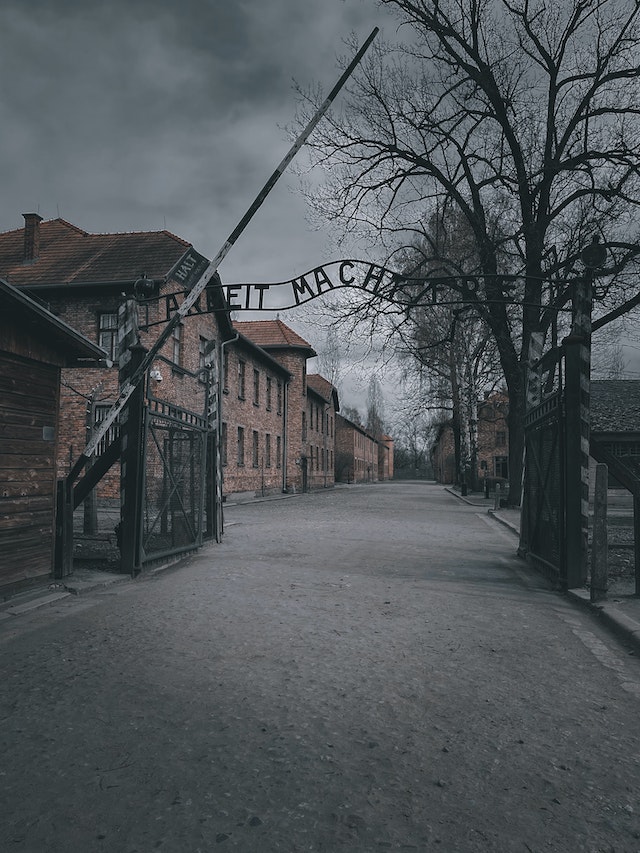Oxford MBA shares insights from the Fellowship at Auschwitz for the Study of Professional Ethics
Class of 2022 MBA alumnus Cameron Wood was selected last Summer for the highly prestigious Fellowship at Auschwitz for the Study of Professional Ethics Programme. To mark Holocaust Memorial Day we asked Cameron to share his reflections from his programme experience:
'Last May I travelled to Germany and Poland as part of the Fellowship at Auschwitz for the Study of Professional Ethics (FASPE), an interdisciplinary programme that uses the stark case study of professionals’ complicity and propagation of the Holocaust to get young professionals to critically consider their ethical obligations in their careers.
The fellowship was emotionally exhausting and on the whole I still struggle to appropriately articulate my experience, but there are a couple of things I wanted to share with current Saïd Business School MBAs and the Oxford community.
First, FASPE taught me the importance of witnessing history. I believe business leaders need to understand the historical context under which they operate. The familiar quote ‘those who fail to learn from history are doomed to repeat it,’ comes to mind. I also think the concept of ‘Truth and Reconciliation’ is important here. Communities, organisations and businesses alike should acknowledge and understand the truth of their history, as a first step towards reconciliation of past wrongs and building a path forward.
Next, beyond witnessing the history of the Holocaust, including visiting sites of mass murder, the fellowship asks its members to consider the history of the Holocaust in the context of their understanding of morality and ethics.
Specifically, it confronts us with the harsh truth that all elements of Nazi society, from the clergy to business leaders, were complicit in or actively engaged in the murder of millions of people during the Holocaust. We come to see that the Holocaust was, among other things, cultivated by the moral collapse of society. The programme directly challenges the comforting stories we tell ourselves that the Holocaust was perpetrated by a limited number of evil ring leaders, forced upon an unwilling population. It confronts us with the fact that this moral decay allowed for the undermining and expungement of the rights of Jews and other groups persecuted by the Nazis and their systematic and brutal murder, with the support and acquiescence of the vast majority of the surrounding community.
Finally, we are asked if such moral decay can happen, and if society allows such evil to occur, what responsibility do leaders have in our current lives to maintain morality and protect the principles we hope guide our communities? This is complicated even more by the inescapable impression that the moral decay that enabled the Holocaust is not some unique trait of 1930’s Germany, but rather a looming dark potential of society to coordinate and manifest evil against fellow humans. If we accept that all humans are susceptible to the moral decay that, when left to the extreme, can facilitate the murder of millions, we are left with a crucial question. How do we ensure that current and future leaders understand their moral obligations and have the courage and empathy necessary to stand as a bulwark against moral erosion and decay?
There are no neat and tidy answers to those questions. It is important to avoid reducing the singularity of the evil of the Holocaust, while recognising the potential allegories for moral decay and challenges within other episodes of history and current challenges. However, I am resolute from my experience with FASPE that all leaders should be confronted with the truth about the historical complicity of business, professional and community roles in horrible crimes. Collectively, we must consider what steps we will take to prevent such things in the future.
Some readers might say these questions are too hypothetical and unrelated to real world challenges of business students and alumni. We often hear people consider ethical dilemmas as a future challenge as though one day they will be confronted with a clear ethical challenge similar to the classic train track dilemma where they have a straightforward binary choice.
History shows us that leaders will not be confronted with ethical dilemmas like this. Instead, we will be confronted with moral decay, incremental indecencies that in a vacuum seem small but in their entirety can become massively wrong. By waiting for these grand ethical battles that will never come, we risk slipping into complacency and acquiescence. Business leaders, aspiring and current, must come to terms now with whether they recognise moral decay and if they have the strength and compassion to stand for their principles. Ethical leadership requires sustained action in the present rather than waiting for a red line that we will forget or explain away when the time comes.'
Many thanks to Cameron for sharing his thoughts and reflections from the fellowship with our community on Holocaust Memorial Day.
